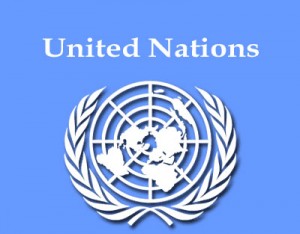By Sami Zaptia.

London, 13 June 2017:
Increased disunity of Libyan state institutions reduces oversight and increases misappropriation a UN report reveals. The assessment was made by the 299-page UN Libya Experts Panel report 2017 released last week. The report revealed varied and complex causes of Libyan instability.
The report highlights the fact that even the Faiez Serraj-led Presidency Council / Government of National Accord – which was supposed to unify Libya – has contributed to this disunity.
‘‘The Panel finds that the key financial institutions of Libya remain more divided than ever. With the possible exception of the National Oil Corporation, control over their infrastructure, assets and personnel has further fragmented. This has reduced the possibility for oversight and increased the risk of misappropriation’’.
‘‘The Presidency Council has been divided over the organization of and appointments in key institutions. For example, Fathi al-Mejbari has tried to replace Mustafa Sanallah at the helm of the National Oil Corporation, and Ahmed Maetig has repeatedly advocated removing Faisel Gergab from the Libyan Post, Telecommunication and Information Technology Company. In addition, in those cases where the Presidency Council did reach a decision, the decision has been further contested externally and the Council mandate questioned’’.
‘‘As a consequence, the loyalty of some staff is still divided between the competing authorities, which have each tried to make their own appointments. Rival managements and their political backers continue to attempt to strengthen their position through various strategies, including legal action and support from armed groups, often with a destabilizing impact’’.
‘‘Sources consulted by the Panel are in agreement that the interference of armed groups in Tripoli has increased. Rival managements of institutions sometimes actively seek the services of armed groups to strengthen their claims. Sometimes, armed groups make themselves indispensable. In some cases, armed group affiliates are included in the staff or management of institutions’’.
‘‘Important concerns over the budgetary implications of the persistent division have been voiced by the Audit Bureau of Libya. The Bureau pointed out to the Panel that State expenditure was still too high, especially in terms of the exaggerated number of employees on government payroll’’.
‘‘In addition, the Al-Ghweil and Al-Thinni Governments continue to enter into contracts in the name of the Libyan State. The Presidency Council itself is also responsible for misspending, as shown by its transfer of $42 million to Ibrahim Jadhran in mid-2016’’.
‘‘Other concerns raised included the weakened position of Libyan institutions in numerous multimillion dollar court cases, often initiated with the assistance of Libyan nationals seeking to make a profit out of them. Finally, frequent attempts are made to sell assets of Libyan institutions and companies to obtain liquidity’’.
”The Panel received many allegations of misappropriation of State funds from dozens of interviewees, many of whom were insiders. Given the complexity of these cases, the limited access to Libya and the resources available to the Panel, it cannot possibly investigate all of these allegations conclusively and in detail”.
‘‘Without unity and stability, these issues cannot be addressed’’, the UN Libya Experts Panel report concludes.






